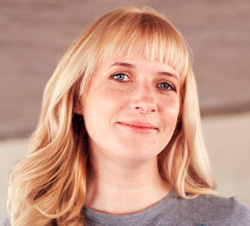For two days in a row, Barack's spying on American people has been lied about and distorted on NPR's Morning Edition.
Let's start with yesterday. In one segment, NPR demonstrated that to be an NPR expert you have to be an idiot. From Steve Henn's report, and it starts with a quote from whistle-blower Ed Snowden:
SNOWDEN: Not all analysts have the ability to target everything. But I, sitting at my desk, certainly had the authorities to wiretap anyone from you or your accountant to a federal judge to even the president if I had a personal email.
HENN: So is this plausible?
CARRIE CORDERO: No.
HENN: Carrie Cordero is the director of National Security Studies at Georgetown University Law Center.
CORDERO: The notion that this individual has the authority to go ahead and quote-unquote wiretap people is just ridiculous.
What is Snowden speaking of? Don't expect NPR to tell you because their expert is too busy informing you that "authority" means court orders. What a supremely stupid idiot. Whatever technology Ed is speaking of, he's not claiming to have legal authority. That's what his entire whistle-blowing has been about -- that things are taking place without legal oversight. I'm sorry that Carrie Cordero is both an embarrassment and an idiot who passes her stupidity on to the young via her post at Georgetown, but that's NPR's problem.
[Note: Though NPR failed to note it, they corrected the spelling of Codero's last name from two "r"s to one. I've changed it here. Unlike NPR, I will note that a change has taken place.]
Someone may try to point out Henn tries to draw a line between authority being ability to do something and authority meaning legal permission. He does. Briefly. Then he's back to using that working premise.
Of course, if they'd asked Ed Snowden what he was talking about, maybe he could have cleared it up. But they didn't, they just cribbed from the Guardian's interview.
This is important because as Kat noted last night Senator Susan Collins is wrongly under the impression that Ed's giving all these interviews on camera. He's given one and only one interview on camera and that's been to the Guardian. That a US senator doesn't grasp that means we really need to be emphasizing that.
Also weighing in Wednesday on NPR's Morning Edition was Mara Liasson. From her report:
A new Pew/Washington Post poll shows that 62 percent of Americans felt it was more important for the government to investigate terrorist threats than to protect personal privacy. Maybe, after years of giving up private information on the Internet, Americans are resigned to doing the same for the government, as long as that information is not abused.
First off, this is the line NPR 'news' is selling: "Maybe, after years of giving up private information on the Internet, Americans are resigned to doing the same for the government, as long as that information is not abused." That's the narrative that keeps getting repeated. It's a false narrative and we'll come back to it.
But right now, "A new Pew/Washington Post poll shows that 62 percent of Americans felt it was more important for the government to investigate terrorist threats than to protect personal privacy."
This is the poll we were explaining on Monday. The poll presented the false choice -- even Barack has indicated it's a false choice -- that you either have security or your have personal liberty. That was a fear based question, a push-polling question -- and why it was completely out of sync with the other findings in the poll.
We are specifically discussing the phone records of the American people being stored forever -- like a book on a shelf, filed under a Dewey Decimal type system, until the government decides it 'needs' it, according to James Clapper's statements to Andrea Mitchell on Sunday's Today (NBC -- and see Tuesday's snapshot if streaming isn't an option that helps you). That's the primary discussion. A secondary discussion is the PRISM program. It's probably what Snowden's referring to in the report Henn filed (since Ed has claimed that you take over computer systems and not individuals).
From Monday's snapshot:
As you may know, it has been reported that the National Security Agency has been getting secret court orders to track telephone call records of MILLIONS of Americans in an effort to investigate terrorism. Would you consider this access to telephone call records an acceptable or unacceptable way for the federal government to investigate terrorism?
That's a more specific question. And the results are more specific.
Acceptable: Democrats 64% say the revealed actions are "acceptable," 52% of Republicans say it's acceptable and 53% of Independents say it's "acceptable." Unacceptable? 34% of Democrats, 47% of Republicans and 44% of Independents. And that's where the danger signal is most visible. The biggest support is from the party that occupies the White House. The least stated support? Republicans and Independents are basically in a tie. The same with regards to those who find it unacceptable. When the opposition party and independents track, it's never good news for the party in power.
We were breaking it down because that's what you have to do with polling taken immediately after a scandal emerges. But the overall approval is 56% with 41% disapproving (and the poll has a margin of error of just under 5%).
So that question deals with the story Liasson's covering and the numbers are 56% approve and 41% disapprove. Instead, she runs with the idiotic and fear response: "A new Pew/Washington Post poll shows that 62 percent of Americans felt it was more important for the government to investigate terrorist threats than to protect personal privacy." I said it before, these people are not trained in polling, they're not trained in stats, they don't know how to interpret polls. (And the finding Mara's broadcasting is rejected by CBS' poll out this week, by Rasmussen, by . . . )
Why did she go with that figure. It appears to fit into the fairy tale NPR's telling listeners which is that we're fine, as a country, with being spied upon by the government.
That fairy tale continued on Morning Edition today. Dina Temple-Raston had a report that attempted to provide objectivity regarding the FISA court. I'd say overall that Dina Temple-Raston did a great job. But Mara didn't provide objectivity yesterday and we didn't get objectivity from the story that NPR paired Temple-Raston's report with: a 'social science' discussion between Linda Wertheimer and quack and crackpot Shankar Vedantam.
He is the new Faith Popcorn. You should realize that. If you're saying who, the media promoted her as a social science god as well. Like Faith, Shankar sells sexism (his 2011 article about women and science especially made that clear).
So the crackpot is brought on to discuss Americans.
And we're left with a segment that ignores the Constitution, that ignores the history of America and that misunderstands Americans.
Remember Liasson's insistence -- the fairy tale -- that Americans were now comfortable giving up personal freedoms. That was the point of this garbage.
Shankar and Linda talked about how privacy, in this Brave New World, is given up when you share online or you order online so now people aren't as private.
What a load of crap from two people so full of crap.
Your name is Ivan Plotsky and the year is 1966. You live in NYC. You go into a little corner store and buy Jugs or whatever porn mag you want. You've just shared with a vendor something about your sexual interests.
Because you did that, that doesn't mean you want to share it with the government.
We have always had to share with vendors to get what we wanted. The fact that we share what we like to eat by what we purchase at the grocery store does not mean we want the government having an inventory of it.
Your name is Isabelle O'Brien and it's 1943. Your husband returned from war wounded a few months ago. Everyone's happy he's home and that you're pregnant. You tell your best friend Sonya that actually your husband isn't the father, it's from the affair you were having while he was overseas.
The fact that you share that with your friend Sonya -- on the phone, in a letter, face to face or all three -- does not mean you wish the government to know it.
Technology changes all the time and there are always idiots like Linda and Shankar who mistake technology for humanity. Human nature doesn't really change. We don't like being watched, we don't like being studied. As a people, we've always chosen who we'd share details of our personal lives with.
In fact, one of the most common arguments among people -- best friends, couples, co-workers, you name it -- starts with, "Why did you tell ____ about ___!"
That is one of the most common arguments. Not just today but of all time.
We trust someone with a story that has significance to us. It has meaning.
The other person may not see the meaning and may repeat it because (a) it's a good story, (b) it's good gossip, (c) it accidentally slipped out, (d) they think it portrays you in a better light than you're normally seen in or (e) jealousy.
But over and over, couples have that argument -- why did you tell your mother/brother/father/sister/friend . . . And over and over, friends have that argument.
There's probably not a person over 24 reading the above who hasn't had that argument -- either initiated it or been the one asked the 'why did you tell.'
Technology is not humanity. Only idiots confuse the two.
Today, you can share instantly online! Yes, that's amazing. There's never been anything like it before!!!!!!
Unless of course you worked for Durand's Restaurant in the Union Passenger Station in 1877 when Atlanta got its first private phone line. Suddenly, a whole world opened to you, not unlike with communication devices today. Before that, the telegraph may have changed the world as we know it. Before that the Pony Express. Before that the printing press. Before that the invention of writing. Before that . . .
Technological advances do not change human nature nor do they rewrite space and time.
Linda and an alleged social scientist (with no grounding in US history, US law or the history of the country) yammered away about nothing wasting everyone's time and ensuring that I will feel no guilt come Sunday when Ava and I take on NPR's latest crap-fest which I haven't even mentioned.
Note to an NPR friend who I was on the phone with when I started this entry, I will take on that show. I did take on that non-NPR show. But I've taken it out of the entry because it's on another topic and this one's a little more important at this point. That topic will be addressed in the snapshot later today.
The following community sites -- plus Jody Watley, Ms. magazine's blog, Pacifica Evening News, Antiwar.com and the House Veterans Affairs Committee -- updated last night and this morning:
We'll close with this from The Bat Segundo Show:
The Bat Segundo Show, returns from an
eight month nap with new episodes featuring Lauren Beukes, Roxana Robinson, Lisa
Hanawalt, and Elliott Holt
|
Is this email not displaying correctly? View it in your browser. |
| ||||||||||||||||||||||
| ||||||||||||||||||||||
| ||||||||||||||||||||||
The e-mail address for this site is common_ills@yahoo.com.
iraq jodie evans npr morning edition steve henn mara liasson dina temple-raston linda wertheimer shankar vedantam
the bat segundo show
iraq iraq
iraq iraq iraq iraq iraq iraq iraq iraq iraq iraq iraq iraqiraq iraq iraq iraq iraq iraq
iraq iraq iraq iraq iraq iraq iraq iraq iraq iraq iraq iraqiraq iraq iraq iraq iraq iraq
iraq iraq iraq iraq iraq iraq iraq iraq iraq iraq iraq iraq iraq iraq iraq iraq iraq iraq




